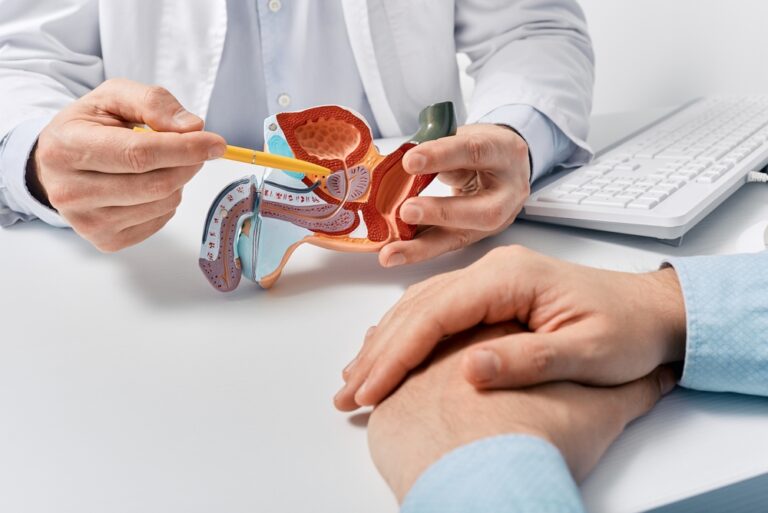Medication and Therapies: A Comprehensive Guide to Erectile Health

Understanding Erectile Dysfunction
Erectile dysfunction, also known as impotence, is a common condition that affects millions of men worldwide. It is defined as the inability to achieve or maintain an erection sufficient for sexual intercourse. While occasional difficulties with erections are normal and can happen to any man, persistent erectile dysfunction can have a significant impact on a person’s quality of life and intimate relationships.
Understanding the causes of erectile dysfunction is crucial in order to identify appropriate treatment options. The condition can stem from a variety of factors, including physical, psychological, and lifestyle-related issues. Physical causes include medical conditions such as diabetes, heart disease, high blood pressure, hormonal imbalances, and certain medications. Psychological factors, such as stress, anxiety, depression, and relationship problems, can also contribute to the development of erectile dysfunction. Additionally, unhealthy lifestyle habits, such as smoking, excessive alcohol consumption, and lack of exercise, can increase the risk of experiencing difficulties with erections.
It is important to note that erectile dysfunction is a treatable condition and seeking medical advice is key. By understanding the underlying causes and risk factors, individuals can make informed decisions regarding the most appropriate treatment options. In the following sections, we will explore the symptoms, diagnosis, and various treatment approaches available for managing erectile dysfunction.
Causes of Erectile Dysfunction

Erectile dysfunction is a condition that can have various causes, often stemming from a combination of physical and psychological factors. One of the primary causes of erectile dysfunction is poor blood flow to the penis. This can occur due to underlying health conditions such as diabetes, high blood pressure, or heart disease. When these conditions affect the blood vessels, it becomes difficult for sufficient blood to flow to the penis, resulting in difficulties achieving or maintaining an erection.
Another common cause of erectile dysfunction is hormonal imbalances. Testosterone is a key hormone that plays a crucial role in sexual function. When there is a decrease in testosterone production or an imbalance in hormone levels, it can contribute to erectile problems. This can occur due to aging, certain medications, or conditions such as hypogonadism.
Psychological factors also play a significant role in erectile dysfunction. Stress, anxiety, depression, and relationship issues can all contribute to difficulties in achieving or maintaining an erection. These psychological factors can create a vicious cycle, as the fear and insecurity related to erectile dysfunction can further exacerbate the problem.
It is important to note that these causes are not exhaustive, and there can be other contributing factors to erectile dysfunction. Understanding the underlying causes is crucial in formulating an effective treatment plan tailored to the individual’s needs. If you are experiencing symptoms of erectile dysfunction, it is recommended to consult with a healthcare professional who can provide a comprehensive evaluation and guide you towards appropriate treatments.
Symptoms and Signs of Erectile Dysfunction
Erectile dysfunction (ED) can be a distressing condition that affects many men at different stages of their lives. It is important to understand the symptoms and signs of this condition to seek appropriate treatment and support. One of the most common symptoms of ED is the persistent inability to achieve or maintain an erection sufficient for sexual activity. This can cause significant stress, anxiety, and frustration for both the individual and their partner. Additionally, some men may experience a reduced or loss of sexual desire, known as a decreased libido, which can further contribute to difficulties in achieving or sustaining an erection. Other symptoms may include a decrease in the firmness or rigidity of the erection, a shortened duration of erections, or a complete inability to achieve an erection. It is important to note that occasional difficulties with getting or maintaining an erection are normal and do not necessarily indicate the presence of erectile dysfunction. However, if these symptoms persist or occur frequently, it may be a sign of an underlying condition that requires medical attention.
In addition to the physical symptoms, erectile dysfunction can also have a significant impact on one’s emotional well-being and overall quality of life. Many men with ED report feelings of embarrassment, shame, and low self-esteem. The inability to perform sexually can lead to relationship difficulties and a decrease in sexual satisfaction for both partners. It is essential to address these emotional aspects in addition to the physical symptoms of ED, as comprehensive treatment should consider the individual’s overall well-being. Seeking professional help from a healthcare provider who specializes in men’s sexual health can help provide a supportive and understanding environment to discuss these concerns and explore potential treatment options. Understanding the symptoms and signs of erectile dysfunction is the first step towards finding effective solutions and improving sexual health and overall well-being.
Risk Factors for Erectile Dysfunction
Erectile dysfunction (ED) can be influenced by various risk factors that can increase the likelihood of experiencing this condition. One major risk factor for ED is age. As men get older, their risk of developing erectile dysfunction tends to increase. According to a study published in the Journal of Sexual Medicine, the prevalence of ED increases from approximately 2% in men aged 40-49 years to about 60% in men aged 70+ years.
Another key risk factor for erectile dysfunction is underlying medical conditions. Conditions such as diabetes, heart disease, hypertension (high blood pressure), and obesity have been linked to an increased risk of developing ED. These conditions can affect blood flow and nerve function, both of which play a crucial role in achieving and maintaining an erection. In fact, research has shown that approximately 80% of men with diabetes will experience some degree of erectile dysfunction.
Additionally, lifestyle choices can also contribute to the development of erectile dysfunction. Smoking, excessive alcohol consumption, and drug abuse have all been associated with an increased risk of experiencing ED. These substances can affect the blood vessels and nerves necessary for proper erectile function.
Understanding the risk factors for erectile dysfunction is essential in identifying and addressing potential underlying causes. By recognizing these risk factors, individuals can make informed decisions about their health and take necessary steps to mitigate their risk of developing this condition. It is important to consult with a healthcare professional for a comprehensive evaluation and appropriate management strategies.
Diagnosis of Erectile Dysfunction
When it comes to diagnosing erectile dysfunction (ED), healthcare professionals follow a systematic approach to determine the underlying cause and provide appropriate treatment. The diagnosis of ED involves a comprehensive evaluation of the patient’s medical history and conducting various tests, as necessary.
During the initial consultation, your healthcare provider will ask you questions about your symptoms, medical history, and lifestyle factors that may contribute to ED. This includes any medications you are currently taking, chronic illnesses you may have, previous surgeries, and psychological factors that might be affecting your sexual health. It’s important to be open and honest during this discussion as it will help your healthcare provider gain a full understanding of your situation.
In addition to the medical history, a physical examination may also be conducted. This typically involves a thorough examination of the genital area to check for any abnormalities or signs of underlying health conditions. Your healthcare provider may also examine your blood pressure and listen to your heart and lungs to identify any potential cardiovascular issues.
Depending on the information gathered from the history and physical examination, your healthcare provider may recommend further diagnostic tests. These tests aim to assess various aspects that can contribute to ED, such as hormone levels, blood flow to the penis, and nerve activity. Common diagnostic tests for ED include blood tests, ultrasound imaging, nocturnal penile tumescence test, and injection tests.
Blood tests can help identify any underlying hormonal imbalances or abnormalities that might be contributing to ED. Ultrasound imaging utilizes sound waves to create images of the blood vessels supplying the penis, providing valuable information about blood flow. Nocturnal penile tumescence test involves monitoring the frequency and quality of spontaneous nighttime erections, which can indicate the functioning of the erectile mechanism. Injection tests involve injecting a medication into the base of the penis to assess its response and determine if there are any physical causes of ED.
By combining the information gathered from the medical history, physical examination, and diagnostic tests, healthcare professionals can accurately diagnose the cause of ED and develop an appropriate treatment plan. It’s important to keep in mind that the diagnostic process may vary for each individual based on their specific circumstances and healthcare provider’s judgment.
Lifestyle Changes for Improving Erectile Health
To improve erectile health, making certain lifestyle changes can be quite beneficial. These changes involve adopting healthier habits and adjusting daily routines to support overall well-being. In particular, focusing on regular exercise, maintaining a healthy diet, managing stress levels, getting quality sleep, and avoiding harmful habits such as smoking and excessive alcohol consumption can play a significant role in improving erectile health.
Engaging in regular physical activity has been shown to improve blood flow throughout the body, including to the penis. This can enhance erectile function and reduce the risk of erectile dysfunction. Incorporating activities such as brisk walking, jogging, cycling, or swimming into your routine can have positive effects on cardiovascular health and promote better overall blood circulation.
Following a balanced and nutritious diet is another crucial aspect of maintaining erectile health. Certain foods, such as those rich in antioxidants, vitamins, and minerals, can support proper erectile function. These include fruits and vegetables, whole grains, lean proteins, and healthy fats. It is also important to limit the intake of processed and high-sugar foods, as they can contribute to weight gain, diabetes, and other health conditions that may negatively affect erectile function.
Stress is known to impact sexual function, so finding effective stress management techniques can be helpful. This might include activities like meditation, deep breathing exercises, yoga, or engaging in hobbies that bring joy and relaxation. Additionally, ensuring sufficient sleep, both in terms of duration and quality, can also have a positive impact on erectile health.
Avoiding harmful habits is crucial for maintaining optimal erectile health. Both smoking and excessive alcohol consumption have been associated with increased risk of erectile dysfunction. Quitting smoking and moderating alcohol consumption can improve overall health and enhance sexual function.
By making these lifestyle changes, one can take proactive steps towards improving erectile health. However, it is essential to acknowledge that each person’s situation is unique, and what works for one may not always work for another. Consulting a healthcare professional is advised to discuss personalized recommendations and address any specific concerns or conditions.
Dietary Recommendations for Erectile Health
A healthy and balanced diet plays a crucial role in maintaining overall well-being, including sexual health. When it comes to erectile health, certain dietary recommendations can help improve blood flow, enhance libido, and support optimal sexual function. Incorporating the following foods into your daily meals can provide potential benefits for erectile health.

1. Leafy greens: Spinach, kale, and other leafy greens are rich in nitrates, which are converted into nitric oxide in the body. Nitric oxide helps relax blood vessels and promotes better blood flow, essential for achieving and maintaining erections.
2. Berries: Strawberries, blueberries, and other berries are abundant in antioxidants, such as anthocyanins. These antioxidants have been found to enhance blood flow, reduce inflammation, and improve erectile function.
3. Fatty fish: Fish like salmon, mackerel, and trout are excellent sources of omega-3 fatty acids. These healthy fats have anti-inflammatory properties that can support arterial health and improve blood flow to the penile region, potentially benefiting erectile function.
4. Nuts and seeds: Almonds, walnuts, flaxseeds, and chia seeds are packed with nutrients, including zinc, which is essential for testosterone production. Testosterone plays a vital role in sexual desire and function.
5. Dark chocolate: Dark chocolate contains flavonoids, antioxidants that can enhance blood flow and boost nitric oxide production. Opt for dark chocolate with a high cocoa content to reap these potential benefits for erectile health.
Remember, while these dietary recommendations can provide potential benefits for erectile health, they should be part of a comprehensive approach that includes a healthy lifestyle, regular physical activity, and proper medical guidance. Consultation with a healthcare professional is essential to address individual needs and optimize sexual well-being.
Exercise and Physical Activity for Erectile Health
Regular exercise and physical activity are important not only for maintaining overall health and well-being but also for improving erectile health. Engaging in regular physical exercise can have a positive impact on your sexual health and reduce the risk of erectile dysfunction (ED).
Exercise helps promote good blood flow throughout the body, including to the genital area, which is crucial for achieving and maintaining an erection. Research has shown that men who are physically active have a lower risk of developing ED compared to those who are sedentary. A study published in the Journal of Sexual Medicine found that men who engaged in aerobic exercise for at least 180 minutes per week had a significantly lower risk of ED.
In addition to aerobic exercise, strength training and pelvic floor exercises can also be beneficial for erectile health. Strength training helps build muscle mass and improve circulation, while pelvic floor exercises, such as Kegels, help strengthen the muscles responsible for controlling erections and ejaculation.
It’s important to note that while exercise can improve erectile health, it may not be a standalone solution for all cases of ED. If you are experiencing persistent or severe difficulties with achieving or maintaining an erection, it’s recommended to consult with a healthcare professional who can provide a comprehensive evaluation and determine the best course of treatment for your specific situation.
Psychological Factors and Erectile Dysfunction
Psychological factors can play a significant role in the development of erectile dysfunction (ED). It is essential to understand that the mind and body are intricately connected, and emotional well-being is vital for sexual health. Stress, anxiety, depression, and relationship issues are some of the psychological factors that can contribute to ED.
Studies have shown that high levels of stress can increase the risk of experiencing ED. Stress triggers the release of cortisol, a hormone that can interfere with the normal functioning of the reproductive system. Additionally, anxiety and depression can lead to feelings of low self-esteem, decreased sexual desire, and difficulty maintaining an erection. Relationship issues, such as communication problems or unresolved conflicts, can also have a negative impact on sexual performance.
Addressing psychological factors is crucial in managing ED. Seeking professional help, such as therapy or counseling, can provide individuals with the tools and support to navigate these challenges. Additionally, stress management techniques, such as relaxation exercises, mindfulness, and engaging in enjoyable activities, can play a role in reducing the impact of psychological factors on erectile health. It is important to remember that treating the underlying psychological causes can often lead to improved sexual function and overall well-being.
Non-Medication Therapies for Erectile Dysfunction
Non-medication therapies can play a significant role in the treatment of erectile dysfunction. For those seeking alternative options or wanting to complement their existing treatment plan, these therapies may provide potential benefits. One such therapy is acupuncture. Derived from traditional Chinese medicine, acupuncture involves the insertion of thin needles into specific points on the body. Some studies suggest that acupuncture may help improve erectile function by increasing blood flow and stimulating nerve endings. However, more research is necessary to establish its effectiveness definitively.
Another non-medication therapy that shows promise is pelvic floor muscle exercises, commonly known as Kegel exercises. These exercises aim to strengthen the muscles that support erectile function, including those involved in maintaining an erection and controlling ejaculation. Research indicates that regular practice of Kegel exercises can enhance erectile function and overall sexual satisfaction. These exercises are relatively simple and can be done discreetly at any time. Consulting a healthcare professional or a physiotherapist experienced in pelvic floor rehabilitation can provide guidance on proper technique and frequency of exercises.
Non-medication therapies offer a potential avenue for individuals seeking additional options for managing erectile dysfunction. While acupuncture and Kegel exercises hold promise, it’s crucial to note that individual results may vary, and it is advisable to consult with a healthcare professional before starting any new therapy. Integrating these therapies with a comprehensive treatment plan that includes lifestyle modifications and medication, if needed, can offer a holistic approach to improving erectile health.
Vacuum Erection Devices (VEDs) for Erectile Health
Vacuum Erection Devices (VEDs) are non-invasive medical devices that have proven to be an effective treatment option for erectile dysfunction (ED). These devices work by creating a vacuum around the penis, drawing blood into the corpora cavernosa, which are two chambers that run along the length of the penis. This increased blood flow helps to produce an erection that is firm and durable enough for sexual intercourse.
VEDs consist of a plastic cylinder that is placed over the penis, creating a seal against the skin. A hand pump or battery-operated pump is used to create the vacuum, which in turn draws blood into the penis. A constriction ring is then placed at the base of the penis to maintain the erection. VEDs are generally safe and well-tolerated, with few side effects reported. They can be used by men of all ages and have been found to be particularly effective for those with mild to moderate ED.
Studies have shown that VEDs can significantly improve erectile function and overall sexual satisfaction in men with ED. One study found that up to 90% of men who used VEDs experienced successful erections. Another study reported that 83% of men were able to achieve satisfactory sexual intercourse with the use of VEDs. These findings suggest that VEDs can be a valuable treatment option for men who are unable to achieve or maintain an erection sufficient for sexual activity.
It is important to note that while VEDs can provide temporary relief and improve sexual function, they do not treat the underlying causes of erectile dysfunction. Therefore, it is essential to consult with a healthcare professional to determine the underlying cause of the condition and develop a comprehensive treatment plan. Additionally, individuals with certain medical conditions, such as bleeding disorders or penile deformities, should exercise caution when using VEDs and seek guidance from their healthcare provider. Overall, VEDs offer a non-invasive and effective option for men seeking to improve their erectile health and regain sexual confidence.
Penile Injections for Erectile Dysfunction
For individuals experiencing erectile dysfunction (ED), penile injections offer a potential solution for restoring sexual function. These injections, also known as intracavernosal injections, involve the direct injection of medication into the penis to stimulate an erection. The medication typically used in these injections is alprostadil, a prostaglandin E1 analog that helps relax the blood vessels and increase blood flow to the penis.
Penile injections have shown promising results in treating ED, with studies reporting high rates of success. In fact, a systematic review published in the Journal of Sexual Medicine found that over 80% of men achieved satisfactory erections with the use of penile injections. This makes it a valuable option for those who have failed to respond to other treatment approaches such as oral medications or vacuum erection devices.
The procedure itself involves self-administration, and while it may initially seem daunting, many men find it relatively easy to learn and perform. The medication is typically injected with a very fine needle into the side of the penis, resulting in a quick and effective response. It is worth noting that the injections should be timed appropriately, usually about 10-15 minutes before sexual activity, to ensure optimal results.
While penile injections can be an effective treatment for ED, it is important to seek guidance from a healthcare professional experienced in this area. They can help determine the correct dosage and provide instructions on proper administration techniques to minimize the risk of complications. Additionally, they can address any concerns or questions you may have, ensuring your comfort and safety throughout the process.
In conclusion, penile injections offer a successful and viable treatment option for individuals struggling with erectile dysfunction. With high success rates and relatively straightforward administration, it is a promising approach for those who have not found success with other treatments. By working closely with a knowledgeable healthcare professional, you can explore the potential benefits of penile injections and regain the sexual function you desire.
Penile Implants for Erectile Health
Penile implants, also known as penile prostheses, are one of the treatment options available for individuals experiencing erectile dysfunction. These implants are designed to restore sexual function by surgically placing a device into the penis.
There are different types of penile implants available, including inflatable and malleable implants. Inflatable implants consist of cylinders that are placed into the shaft of the penis, a reservoir that holds fluid, and a pump that is inserted into the scrotum. When the pump is activated, the fluid is transferred from the reservoir to the cylinders, causing the penis to become erect. On the other hand, malleable implants are bendable rods that are inserted into the penis, allowing it to be manually positioned for sexual activity.
While penile implants can be an effective solution for some individuals, they are typically recommended when other treatments have failed or are not suitable. It is important to note that penile implants require surgical intervention, and as with any surgical procedure, there are potential risks and complications involved. Before considering this option, it is essential to consult with a healthcare professional to determine if penile implants are the right choice for you.
Oral Medications for Erectile Dysfunction
Oral medications are a common and effective treatment option for individuals experiencing erectile dysfunction. These medications work by increasing blood flow to the penis, allowing for improved and sustained erections. They are generally safe and have been shown to have a high success rate in treating erectile dysfunction.
One of the most well-known oral medications for erectile dysfunction is sildenafil, commonly known as Viagra. It has been extensively studied and has been found to be effective in up to 80% of men. Another popular option is tadalafil, sold under the brand name Cialis, which can provide up to 36 hours of improved erectile function.
It’s important to note that these medications do require a prescription from a healthcare professional, as they may not be suitable for everyone. Your doctor will consider factors such as your overall health, any underlying conditions, and any medications you may currently be taking before prescribing an oral medication for erectile dysfunction.
These medications can have side effects, though they are generally well-tolerated. Common side effects may include headaches, facial flushing, indigestion, and nasal congestion. It’s important to discuss any concerns or potential interactions with your doctor before starting any new medication.
In conclusion, oral medications offer a convenient and effective treatment option for erectile dysfunction. They have been shown to have a high success rate and can greatly improve the quality of life for individuals experiencing this condition. However, it is important to consult with a healthcare professional to determine the best course of treatment for your specific needs.
Other Medications for Erectile Health
Erectile dysfunction (ED) is a common condition that affects many men globally. While oral medications such as Viagra and Cialis are widely known for their effectiveness in treating ED, there are other medications available that can also help improve erectile health. These alternative medications, which work by enhancing blood flow to the penis, can be used in cases where oral medications may not be suitable or effective.
One option for treating erectile dysfunction is the use of penile suppositories, such as Alprostadil. These suppositories are inserted into the urethra and work by relaxing the blood vessels, allowing for increased blood flow to the penis. Another alternative is the use of topical creams or gels that contain medication, such as Vitaros. These creams are applied directly to the penis and can also help improve blood flow and achieve an erection.
It is important to note that while these medications can be effective for some individuals, they may not work for everyone. It is recommended to consult with a healthcare professional to determine the most appropriate treatment plan for your specific situation. Furthermore, it is crucial to thoroughly understand the potential side effects and risks associated with these medications before use. By working closely with a healthcare provider, individuals can explore various options and find the best medication for their erectile health needs.
Can hormonal therapy be used to treat erectile dysfunction?
Hormonal therapy is not commonly used as a primary treatment for erectile dysfunction. Other medications and therapies, such as oral medications or penile injections, are typically prescribed first. However, in some cases where an underlying hormone imbalance is causing erectile dysfunction, hormonal therapy may be considered as part of the treatment plan.
Are there any alternative medications for erectile dysfunction?
Yes, there are alternative medications available for erectile dysfunction, although they are not discussed in this article. Some examples include alprostadil suppositories, which are inserted into the urethra, and topical creams or gels that can be applied directly to the penis. These medications work by increasing blood flow to the penis, helping to achieve and maintain an erection.
Are there any natural remedies or supplements for erectile dysfunction?
While some natural remedies and supplements claim to improve erectile health, their effectiveness is not well-supported by scientific evidence. It is important to consult with a healthcare professional before using any natural remedies or supplements, as they may interact with other medications or have potential side effects.
Can psychological factors alone cause erectile dysfunction?
Yes, psychological factors alone can contribute to erectile dysfunction. Stress, anxiety, depression, and relationship problems can all play a role in the development or worsening of erectile dysfunction. It is important to address these psychological factors in conjunction with other treatment options to improve erectile health.
Are vacuum erection devices (VEDs) a permanent solution for erectile dysfunction?
No, vacuum erection devices (VEDs) are not a permanent solution for erectile dysfunction. They are a non-medication therapy that can help achieve an erection, but they do not treat the underlying causes of erectile dysfunction. VEDs are typically used as a temporary solution or in combination with other treatments.
Can penile implants be used for all cases of erectile dysfunction?
Penile implants are typically considered as a last resort for severe cases of erectile dysfunction that do not respond to other treatments. They are not suitable for all individuals and require surgery to implant the devices. It is important to discuss the potential risks and benefits of penile implants with a healthcare professional before considering this option.
Are there any lifestyle changes that can improve erectile health?
Yes, there are lifestyle changes that can help improve erectile health. These include maintaining a healthy weight, exercising regularly, reducing stress levels, avoiding excessive alcohol consumption, quitting smoking, and managing any underlying medical conditions such as diabetes or high blood pressure. These lifestyle changes can have a positive impact on erectile function.
References:
- National Institute of Diabetes and Digestive and Kidney Diseases. “Erectile Dysfunction.” U.S. Department of Health and Human Services, niddk.nih.gov/health-information/urologic-diseases/erectile-dysfunction.
- Mayo Clinic Staff. “Erectile Dysfunction: Lifestyle and Home Remedies.” Mayo Clinic, mayoclinic.org/diseases-conditions/erectile-dysfunction/diagnosis-treatment/drc-20355782.






